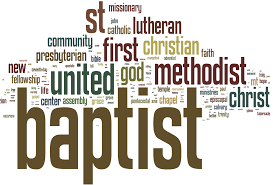Denominational diversity within Christianity is a multifaceted phenomenon that encompasses a wide array of beliefs, practices, and traditions. While some may view this diversity as a source of division, it is essential to understand the underlying reasons that have contributed to the proliferation of denominations within the faith.
- Historical Context: The historical roots of denominational diversity can be traced back to pivotal events such as the Protestant Reformation. During this period in the 16th century, theological disagreements and concerns about corruption within the Roman Catholic Church led to the emergence of Protestant denominations. These divisions marked a significant turning point in Christian history and laid the groundwork for subsequent denominational distinctions.
- Interpretation of Scripture: Differing interpretations of Scripture play a central role in denominational diversity. Christian groups may hold varying perspectives on theological issues such as the sacraments, ecclesiology, and salvation, leading to divergent doctrinal beliefs. These differences in interpretation stem from diverse approaches to biblical hermeneutics and theological frameworks, contributing to the formation of distinct denominational identities.
- Cultural and Regional Influences: Cultural and regional factors exert a significant influence on denominational diversity within Christianity. As the faith spread to different parts of the world, it encountered diverse cultural contexts and traditions. Consequently, Christianity adapted and incorporated elements from these contexts, giving rise to unique expressions of faith within various cultural and geographical settings. These cultural influences contribute to the formation of new denominations and branches of Christianity.
- Traditions and Practices: The diverse traditions and practices within Christianity also contribute to denominational diversity. Different denominations may adhere to specific liturgical practices, forms of worship, and rituals that reflect their theological convictions and historical traditions. While some denominations maintain traditional liturgical practices, others embrace more contemporary forms of worship, reflecting the diversity of worship styles and preferences among believers.
- Ecclesiastical Authority and Governance: Variations in ecclesiastical authority and governance structures further contribute to denominational diversity. Christian groups may adopt different models of church leadership and organizational structures, ranging from hierarchical systems with ordained clergy to congregational or democratic approaches to governance. These differences in governance reflect varying theological perspectives on church authority and decision-making processes.
In conclusion, the reasons for denominational diversity in Christianity are multifaceted and encompass historical, theological, cultural, and organizational factors. While denominational differences may sometimes lead to disagreements and divisions, they also reflect the richness and diversity of the Christian faith. Rather than focusing solely on divisions, Christians should strive for unity in essential beliefs while embracing and celebrating the diversity of expressions within the body of Christ.
